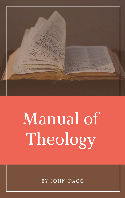Dennett, Edward – Commentary on Nehemiah
WLue777
- 0
Nehemiah
E. Dennett.
Table of Contents
Chapter 1
Chapter 2
Chapter 3
Chapter 4
Chapter 5
Chapter 6
Chapter 7
Chapter 8
Chapter 9
Chapter 10
Chapter 11
Chapter 12
Chapter 13
INTRODUCTION
IN commencing an exposition of the book of Nehemiah, a few brief remarks may be permitted by way of introduction to its study. Scarcely thirteen years had passed since Ezra had gone up to Jerusalem, armed with royal authority and impelled by his godly zeal for the glory of Jehovah in the welfare of His people, “to teach in Israel statutes and judgment;” to seek, in a word, to re-establish over the people the authority of the law. And now in His grace and tender mercy God prepared another vessel of blessing for His beloved people.* This fact illustrates in a striking manner a divine principle. It might have been thought that Ezra would be sufficient for the work; but, as is so often seen in the history of God’s ways in government, a servant who is suited to one state of the people may be altogether unadapted for another, and even be a hindrance to the work of God if he continues to occupy his position or to assert his claims to leadership. How often has this been seen even in the assembly! More than this may be said. It will sometimes be the case that a less spiritual servant can be divinely employed where one who is more spiritual would be utterly out of place.

Dagg Manual of Theology (and links to this work in various other formats).
Dagg Manual of Theology (MySword for Android)
Dagg Manual of Theology (theWord Bible Format)
Dagg Manual of Theology (esword format)
Dagg Manual of Theology (PDF Format)
Thus, if a comparison is instituted between Ezra and Nehemiah, devoted as the latter was, and habitually turning to God as he did, as the source of all his strength, it will be at once perceived that Ezra walked on a higher level than his successor. (Compare Ezra 8:21-23 with Nehemiah 2:7-9; Ezra 9:3 with Nehemiah 13:25.) Yet, though Ezra was still at Jerusalem, it was Nehemiah who is sent at this especial moment. Happy is it when the servant receives his work from the hands of the Lord, and, discerning when his mission for any particular purpose is ended, can retire.
*As a matter of fact God never addresses Israel in this book as His people. The sentence of Lo-Ammi (Hosea 1) was still unreversed, whatever His gracious intervention and actings on their behalf.
In the book of Nehemiah, as well as in that of Ezra, it will be observed that God is ever watching over His people, and sustaining them by the successive interventions of His grace. First, He sent Ezra, and afterward Nehemiah, to revive His work and to effect the restoration of His people. But as in the book of Judges, so at this period; and as it ever has been in the experience of the church, every successive revival, when the energy that produced it has died away, has left the people in a lower, a worse state than before. The reason is evident.
The need for a revival springs from the fact of increasing corruption and decay. By the revival the downward tendency is for the moment checked or arrested; and hence the moment the force which came into conflict with the evil is expended, the corrupt stream sweeps onward with increased power and volume. Such is man; and such is the patient grace of God that, spite of the unfaithfulness and even apostasy of His people, it unweariedly continues to busy itself with their interests and blessing.
As to the character of the book itself we may quote the words of another. He says, “In Nehemiah we witness the rebuilding of the walls of Jerusalem, and the restoration of what may be termed the civil condition of the people; but under circumstances that definitely prove their subjection to the Gentiles.” This will be unfolded to us as we pursue our consideration of the book Download “Dennett-Nehemiah.cmt.twm” Dennett-Nehemiah.cmt.twm – Downloaded 846 times – 1.08 MB
Advertisement

Watchman Nee The Communion of the Holy Spirit is a 3 part, 15 Chapter work on various matters of the Holy Spirit. From the Deeper Life Movement
PDF:Watchman Nee The Communion of the Holy Spirit.
theWord:Watchman Nee The Communion of the Holy Spirit.
MySword:Watchman Nee The Communion of the Holy Spirit.
eSword:Watchman Nee The Communion of the Holy Spirit.